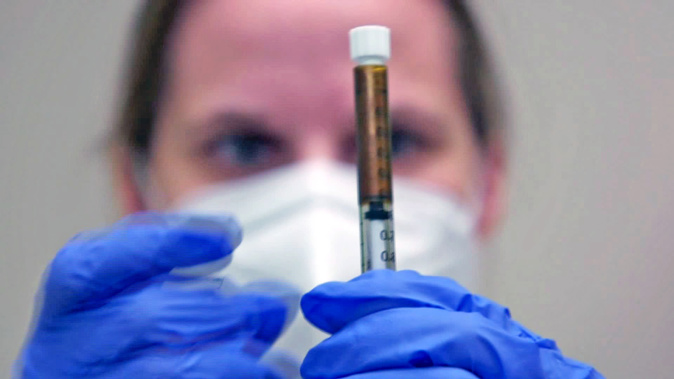
The British government is exploring the possibility of clinical trials in which volunteers are deliberately exposed to coronavirus to test the effectiveness of vaccine candidates, the UK Department for Business, Energy, and Industrial Strategy (BEIS) revealed Wednesday in a statement.
"We are working with partners to understand how we might collaborate on the potential development of a COVID-19 vaccine through human challenge studies," a government spokesperson said.
"These discussions are part of our work to research ways of treating, limiting and hopefully preventing the virus so we can end the pandemic sooner," the spokesperson added.
In so-called "challenge trials," researchers give study subjects an experimental vaccine and then intentionally expose them to coronavirus to see if the vaccine works. Such trials were used in early research with smallpox, yellow fever and malaria.
However, deliberately infecting study participants poses more risks and raises ethical concerns, compared to randomised controlled trials, where study subjects receive a vaccine or a placebo, and researchers monitor to see if they become ill as they go about their daily lives.
The World Health Organisation issued guidance in May saying challenge studies can be "substantially faster" and more effective than other methods, in part because fewer participants need to be exposed to experimental vaccines and because they can be used to compare potential vaccines.
It also said controlled infection trials could be ethically acceptable if they met certain criteria. These include choosing young and healthy adults as participants, starting with low doses, ensuring public engagement, and providing high-quality care and close monitoring.
But in July, members of the US National Institutes of Health "Accelerating Covid-19 Therapeutic Interventions and Vaccines" (ACTIV) Working Group said such trials would not hasten development of a vaccine.
In a commentary published in the New England Journal of Medicine, ACTIV members wrote that using controlled human infection models to support vaccine development requires "essential criteria" to limit the risk for participants and could take "one to two years." It also noted that even "a single death or severe illness" caused by the trial would ultimately "halt progress."
Despite the risks, some people have already raised their hands to take part in challenge trials.
1Day Sooner -- an organisation of "potential Covid-19 trial volunteers" which advocates for the use of such trials -- said Wednesday that controlled infection trials would support the development of a vaccine that is equally accessible to all.
"As an organisation of potential COVID-19 challenge trial volunteers, we have appreciated our collaborative input into the UK Government's challenge plans, and we hope and expect that volunteer voices will be further incorporated in publicly available protocols for these studies," 1Day Sooner said in a statement shared with CNN.
The organisation says it has already submitted a petition to the British government to build a 'Challenge Study Center' to house between 100 and 200 participants at a time, suggesting that some vaccine candidates could be ready for testing before the end of this year.
"We have submitted the petition. It is currently under review," 1Day Sooner said.
text by Sharon Braithwaite, Nada Bashir, and Jamie Gumbrecht, CNN
Take your Radio, Podcasts and Music with you









